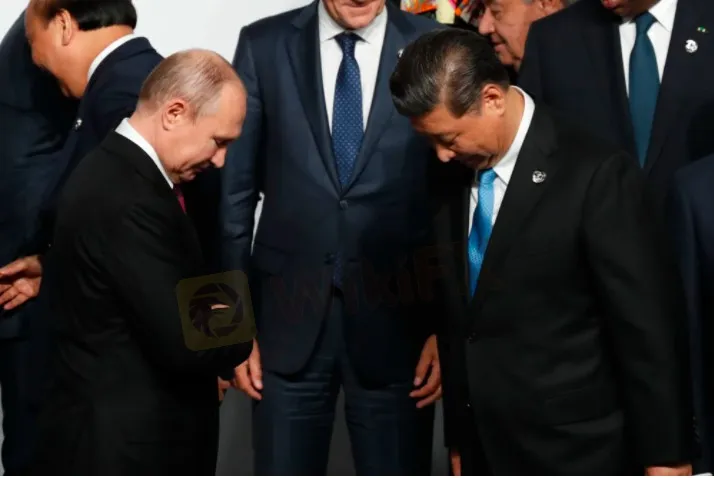简体中文
繁體中文
English
Pусский
日本語
ภาษาไทย
Tiếng Việt
Bahasa Indonesia
Español
हिन्दी
Filippiiniläinen
Français
Deutsch
Português
Türkçe
한국어
العربية
Chinese State Media Is Pushing Pro-Russian Misinformation Worldwide
Abstract:Ad buys show a pattern of targeting cheaper markets.
Beijing has spoken of its neutrality and desire for peace in the conflict between Russia and Ukraine—but Chinese state-affiliated media outlets have kept on spreading Kremlin propaganda, even as European Union countries and social media platforms have moved to ban Russian state media due to misinformation.
According to analysis conducted by CNN, almost half of the most shared posts on Weibo from 14 Chinese state media outlets are strongly pro-Russia. Research by Maria Repnikova and Wendy Zhou shows that social media opinion on Chinese sites leans the same way. But thats not enough for Beijing. Chinese state media is actively working—and paying—to spread pro-Russia misinformation on Western social media platforms like Twitter, Facebook, and TikTok.
The current line China is trying to push onto Western social media platforms is a well-developed lie about U.S. bioweapon experiments in Ukraine. This is a propaganda line well developed in Russian media—but Beijing isn‘t promoting it to help Moscow as much as it is to just smear the West. Since early 2020, China has promoted claims that COVID-19 really originated outside of China and created a fantasy story of U.S. military experimentation at Fort Detrick that created the virus. This claim, heavily normalized in China, is a convenient distraction from China’s own failings in allowing the virus to spread in Wuhan. As omicron challenges China‘s containment system, blaming the West is a useful distraction—but it’s also become a routine exercise for Chinese media.
One of the most notable outlets involved in foreign propaganda is CGTN, an English-language cable TV news service owned by Chinese state media China Central Television (CCTV), under the control of the Chinese Communist Partys Publicity Department. Although some recent reports have discussed Russian bombings, CGTN has generally backed Russian propaganda by calling the invasion “special military action” and directly publishing quotes from Sputnik and other Russian sites, such as “Putin says Russia has no ill intentions towards its neighbours.”

Disclaimer:
The views in this article only represent the author's personal views, and do not constitute investment advice on this platform. This platform does not guarantee the accuracy, completeness and timeliness of the information in the article, and will not be liable for any loss caused by the use of or reliance on the information in the article.
Read more

Should You Beware of Forex Trading Gurus?
Know the reality behind forex trading gurus, examining their deceptive tactics, inflated promises, and the risks associated with trusting them for financial advice.

Why More People Are Trading Online Today?
Discover why online trading is booming with tech, AI, and a push for financial freedom. From stocks to crypto, it’s a thrilling hustle for all.

High Return Traps? WikiFX’s Complete Scam-Busting Handbook to Avoid Financial Fraud!
Financial scams are evolving faster than ever, and fraudsters are getting more creative in luring victims into traps. Whether it’s promising high returns or leveraging authority to build trust, scammers continuously innovate new ways to trick investors. From clone firms to cold calling schemes, it’s essential to understand how these scams work to protect your hard-earned money. This comprehensive guide by WikiFX will help you recognize and avoid common financial scams.

Forex Explained in 60 Seconds: How It Works & Who Profits
Before diving into the forex market, it’s crucial to understand its mechanics, risks, and profit potential. Without a clear grasp of how forex operates, you risk losing money instead of making it. Here’s a concise breakdown to help you navigate this dynamic financial market.
WikiFX Broker
Latest News
The Withdrawal Trap: How Scam Brokers Lure Victims into Paying More
FCA to Investors: Think Twice Before Trusting These Brokers
Trump\s tariffs: How could they affect the UK and your money
Trump gambles it all on global tariffs he\s wanted for decades
TradingView Brings Live Market Charts to Telegram Users with New Mini App
Trump tariffs: How will India navigate a world on the brink of a trade war?
Interactive Brokers Launches Forecast Contracts in Canada for Market Predictions
Authorities Alert: MAS Impersonation Scam Hits Singapore
Stocks fall again as Trump tariff jitters continue
IG Group Acquires Freetrade for £160M to Expand UK Investment Market
Currency Calculator







